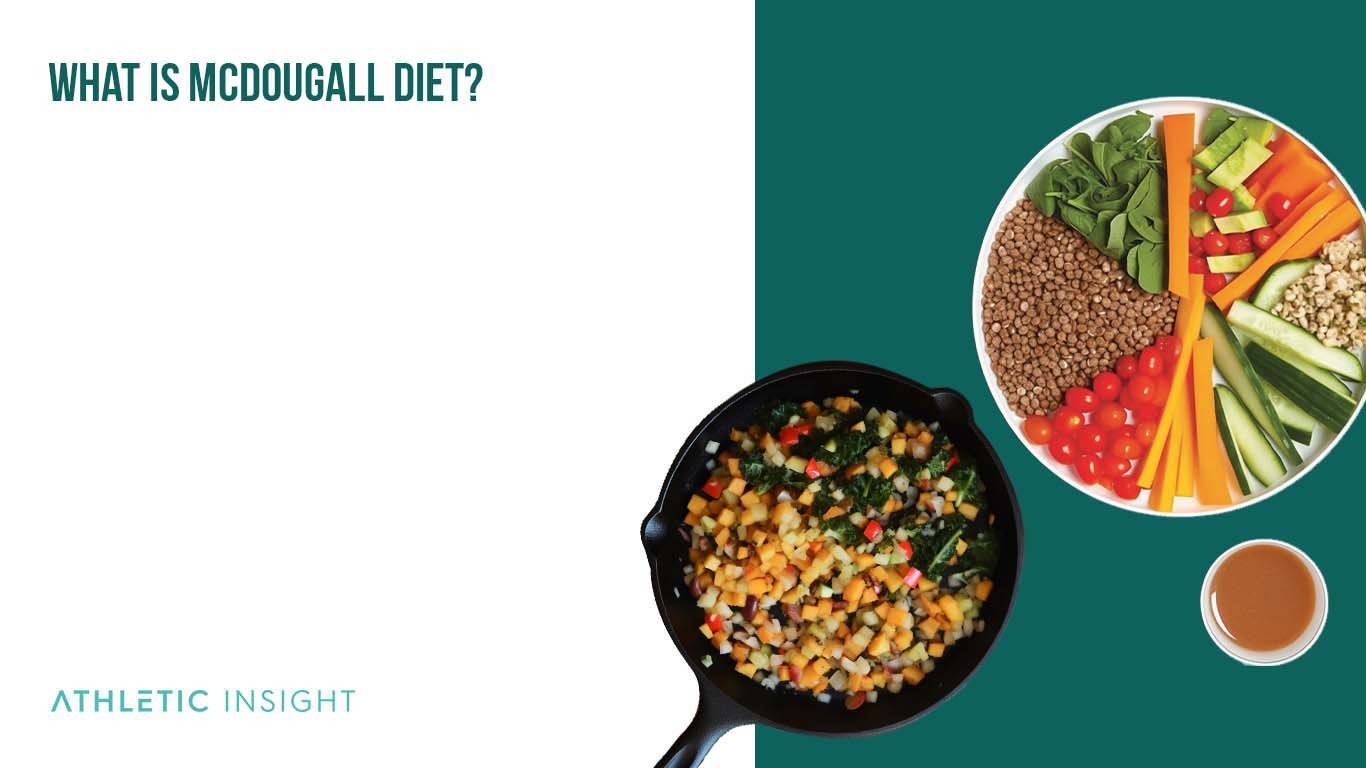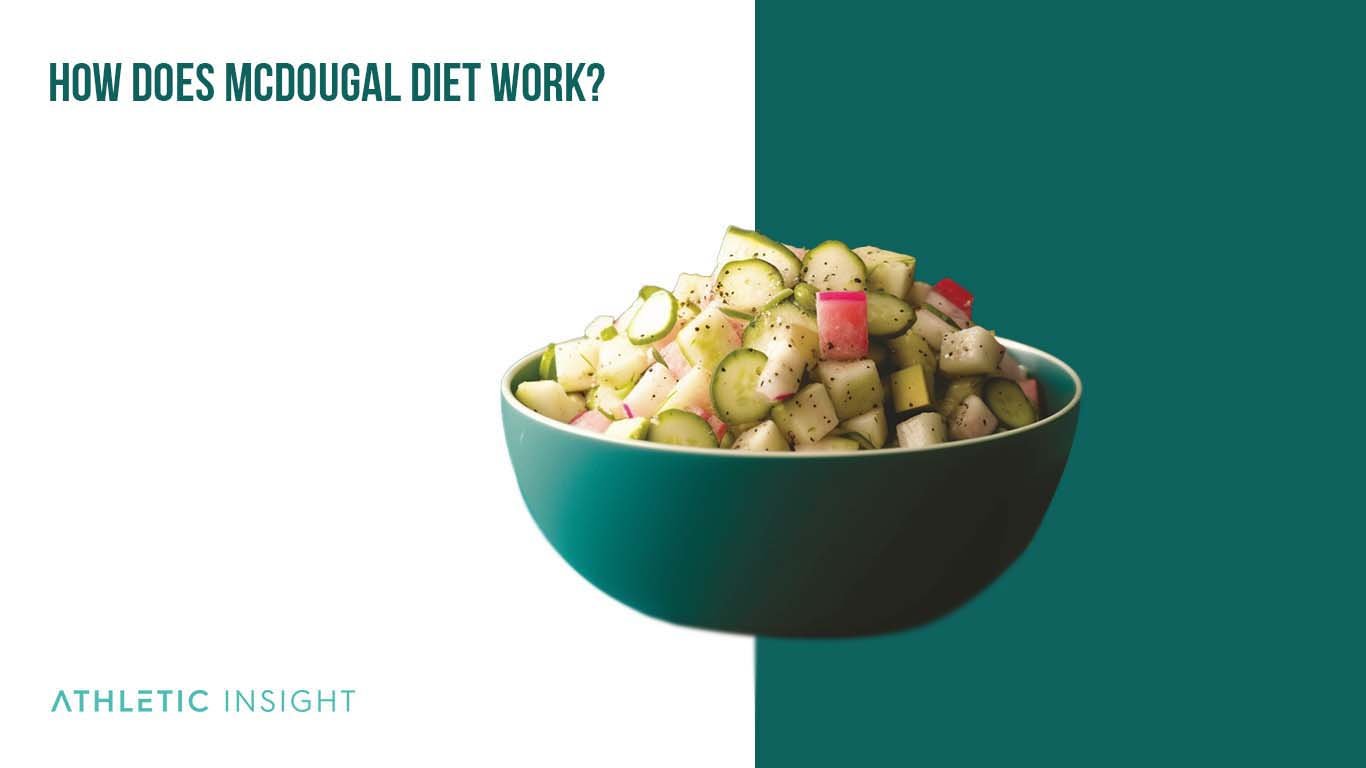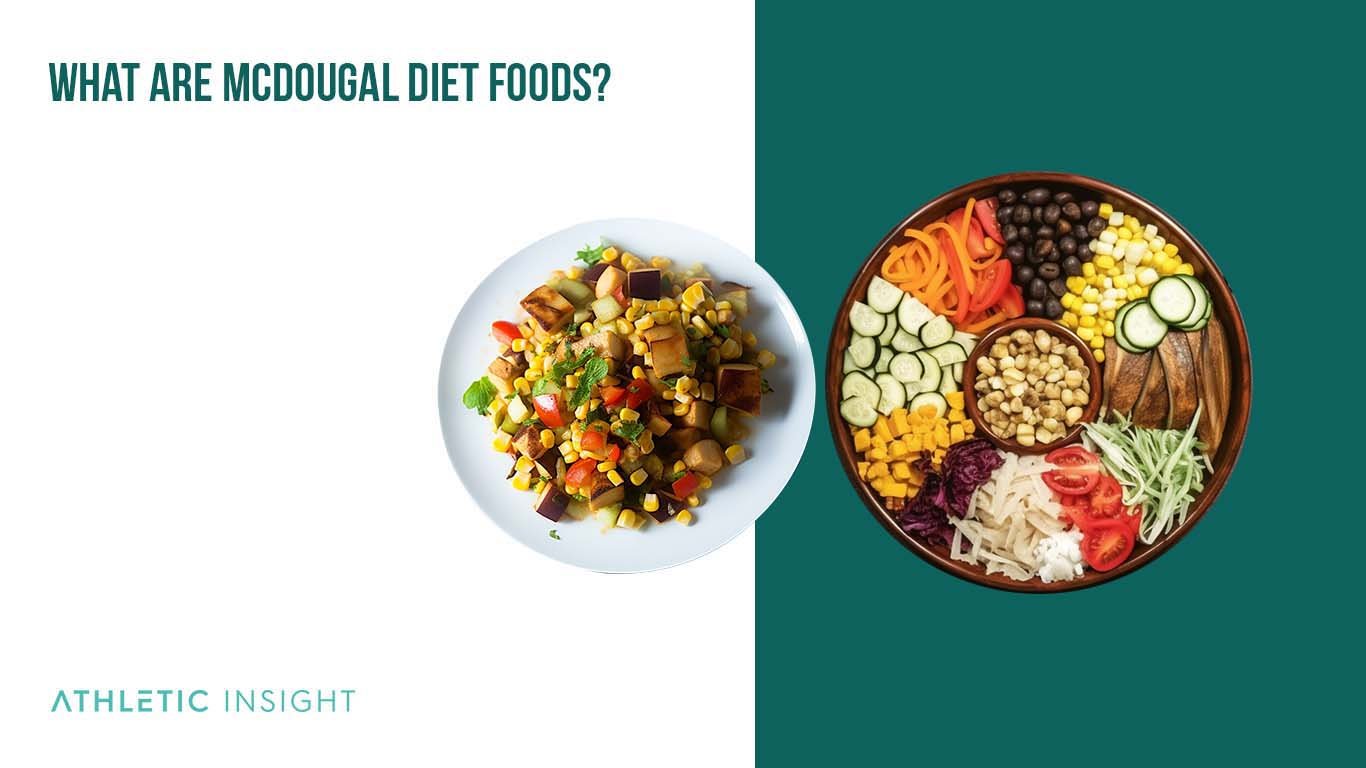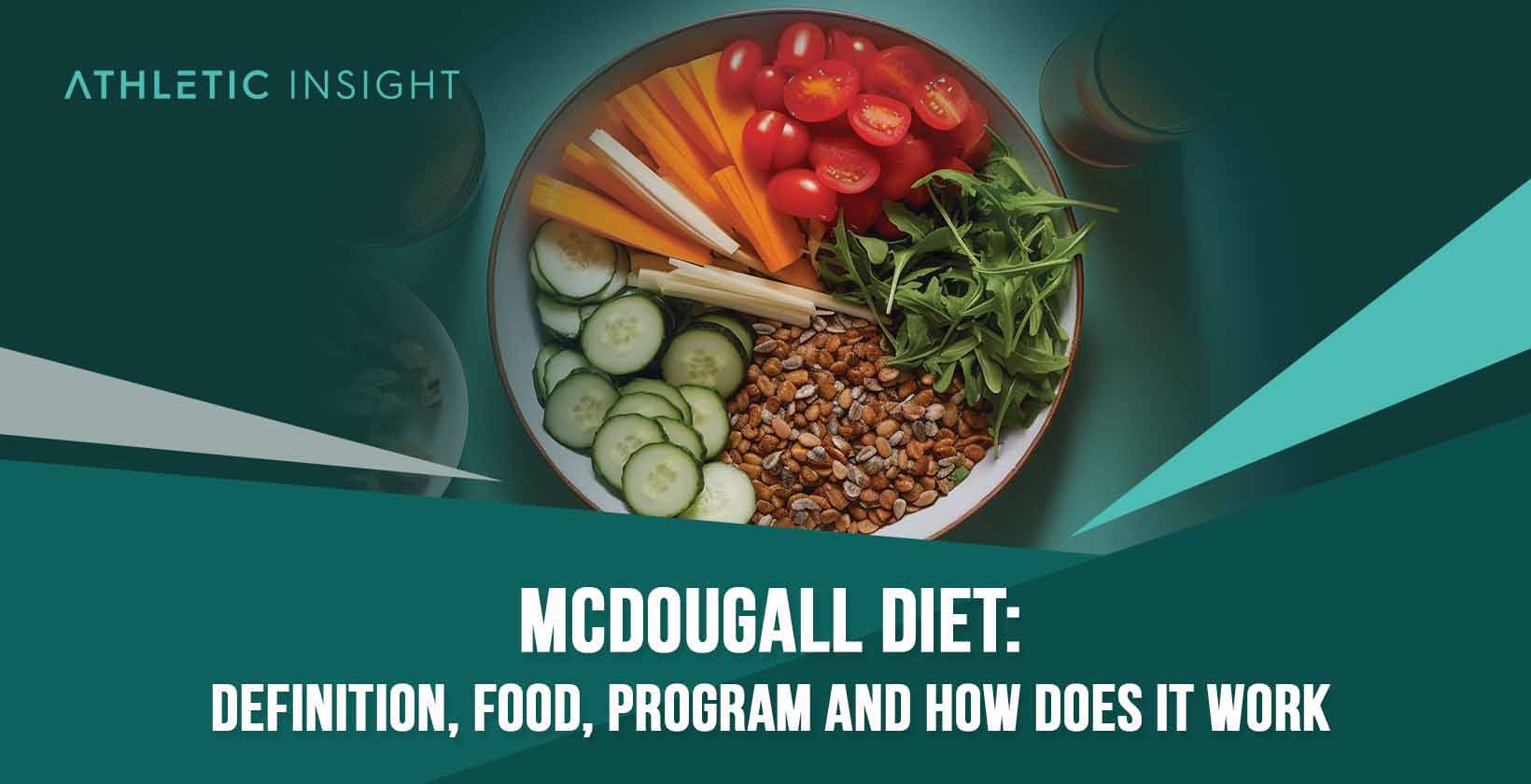The McDougall Diet is a plant-based eating plan that emphasizes the consumption of complex carbohydrates, particularly starchy vegetables and whole grains, while minimizing fat intake. Developed by Dr. John McDougall, the diet aims to promote weight loss, improve overall health, and prevent chronic diseases. This article delves into the specifics of the McDougall Diet, how it works, the foods involved, and the distinctive McDougall Program.
What is McDougall Diet?
The McDougall Diet is a low-fat, high-carbohydrate, plant-based diet created by Dr. John McDougall, an American physician and author. The diet’s primary focus is on the consumption of starches, such as whole grains, legumes, and starchy vegetables, while minimizing fats and avoiding animal-derived foods. Dr. McDougall first introduced his dietary approach in the 1980s through various books and lectures, with one of his most well-known publications being “The Starch Solution.”

How Does McDougal Diet Work?
The McDougall Diet works by emphasizing nutrient-dense, complex carbohydrates that provide sustained energy and promote satiety. By consuming a high proportion of starches, individuals can maintain consistent energy levels throughout the day while reducing overall calorie intake. The diet’s low-fat approach further aids in weight loss and health improvement by limiting the consumption of high-calorie fats, particularly those found in animal products and processed foods.

Who Needs McDougal Diet?
The McDougall Diet is well-suited for individuals seeking weight loss, improved overall health, and the prevention or management of chronic diseases such as type 2 diabetes, heart disease, and hypertension. Furthermore, the diet may benefit those who wish to adopt a plant-based lifestyle for ethical, environmental, or personal reasons.
What are McDougal Diet Foods?
McDougall Diet foods include starchy and regular vegetables, whole grains, legumes, fruits and some nuts and seeds.

- Starchy vegetables: Potatoes, sweet potatoes, corn, and squash.
- Whole grains: Brown rice, quinoa, oats, barley, and whole grain pasta.
- Legumes: Beans, lentils, and peas.
- Vegetables: Leafy greens, cruciferous vegetables, and other non-starchy vegetables.
- Fruits: All varieties, preferably whole and fresh.
- Nuts & Seeds: Limited amounts of nuts, seeds, and avocados.
What is the McDougal Program?
The McDougall Program is a comprehensive lifestyle plan that incorporates the principles of the McDougall Diet, along with exercise and stress management strategies. The program offers educational resources, meal plans, recipes, and support to help individuals adopt and maintain a plant-based, starch-centered diet for optimal health and wellbeing.
What Foods are Allowed and Not Allowed in McDougall Diet?
Below is a table that outlines what foods are allowed and not allowed in the McDougall Diet.
| Allowed | Not Allowed |
|---|---|
| Whole grains | Refined grains |
| Starchy vegetables | Processed foods |
| Legumes | Animal-derived foods |
| Vegetables | Added oils and fats |
| Fruits | Excessive nuts and seeds |
| Limited nuts, seeds, avocados | Sugary beverages and alcohol |
Why McDougall Diet Does Not Have Animal Food?
The McDougall Diet eschews animal-derived foods due to their high fat, cholesterol, and calorie content, which can contribute to weight gain and chronic diseases. Additionally, the diet aims to promote a more sustainable and compassionate lifestyle, as plant-based diets have a lower environmental impact and do not involve the exploitation of animals.
What are Criticisms About McDougall Diet?
Some criticisms of the McDougall Diet include concerns about its low-fat approach, potential nutrient deficiencies, and long-term sustainability. Critics argue that the diet’s restriction of healthy fats, such as those found in nuts, seeds, and avocados, may be detrimental to overall health.
The exclusion of animal-derived foods may also lead to deficiencies in certain nutrients, such as vitamin B12, iron, and omega-3 fatty acids, if not carefully managed. Lastly, some individuals may find the diet’s emphasis on starches and low-fat foods to be overly restrictive and difficult to adhere to in the long term.
How Many Days Does the McDougall Diet Take?
The McDougall Diet does not have a specific duration, as it is intended to be a lifelong eating plan. Individuals may start noticing improvements in their health and weight within weeks or months of adopting the diet, but the ultimate goal is to maintain the dietary principles for long-term health and wellbeing.
What are the potential benefits of the McDougall diet?
Potential benefits of the McDougall Diet include weight loss, improved blood sugar control, reduced cholesterol levels, lower blood pressure, enhanced digestive health, prevention and management of chronic diseases, increased energy levels, environmental sustainability, and ethical considerations regarding animal welfare.
- Weight loss
- Improved blood sugar control
- Reduced cholesterol levels
- Lower blood pressure
- Enhanced digestive health
- Prevention and management of chronic diseases
- Increased energy levels
- Environmental sustainability
- Ethical considerations regarding animal welfare
What are the potential risks of the McDougall diet?
Potential risks of the McDougall Diet include nutrient deficiencies (e.g., vitamin B12, iron, and omega-3 fatty acids), insufficient intake of healthy fats, overemphasis on carbohydrates, which may not suit everyone, difficulty adhering to the diet’s restrictions long-term, potential negative impact on social situations and dining out.
- Nutrient deficiencies (e.g., vitamin B12, iron, and omega-3 fatty acids)
- Insufficient intake of healthy fats
- Overemphasis on carbohydrates, which may not suit everyone
- Difficulty adhering to the diet’s restrictions long-term
- Potential negative impact on social situations and dining out
How does the McDougall diet compare to other plant-based diets?
The McDougall Diet is similar to other plant-based diets, such as the whole-food, plant-based diet and the Engine 2 Diet, in its emphasis on whole, unprocessed plant foods. However, the McDougall Diet differentiates itself by focusing on starches as the primary source of calories and promoting a lower fat intake compared to other plant-based diets that may include more nuts, seeds, and avocados.
What Diseases Can Benefit the McDougall Diet?
Diseases that may benefit from the McDougall Diet include Type 2 diabetes, heart disease, hypertension, obesity, high cholesterol, certain autoimmune diseases, and some types of cancer.
- Type 2 diabetes
- Heart disease
- Hypertension
- Obesity
- High cholesterol
- Certain autoimmune diseases
- Some types of cancer
Is the McDougall diet suitable for everyone?
No, the McDougall Diet may not be suitable for everyone. Individuals with certain health conditions, food allergies, or specific dietary needs should consult with a healthcare professional before adopting the McDougall Diet. Furthermore, some people may find the diet’s emphasis on starches and low-fat foods to be overly restrictive and difficult to maintain long-term.
Can the McDougall diet help with weight loss?
Yes, the McDougall Diet can help with weight loss by promoting the consumption of nutrient-dense, low-calorie plant foods that provide satiety and curb hunger. The diet’s low-fat approach may also contribute to weight loss by reducing overall calorie intake from high-fat foods.
Are avocados allowed for the McDougall diet?
Avocados are allowed on the McDougall Diet but should be consumed in moderation due to their high-fat content. The diet emphasizes minimizing fat intake, so it is recommended to limit the consumption of avocados and other high-fat plant foods, such as nuts and seeds.
What is the Difference between McDougall Diet and Vegan Diet?
The McDougall Diet and the vegan diet both exclude animal-derived foods; however, they differ in their focus and nutritional approach. The McDougall Diet emphasizes consuming starches as the primary source of calories and promotes a low-fat intake, while the vegan diet is a broader lifestyle choice that abstains from animal products for ethical, environmental, or health reasons.
Also, a vegan diet does not inherently prioritize low-fat or high-starch foods and can include a wide range of plant-based foods, including processed and high-fat options. In contrast, the McDougall Diet focuses on whole, unprocessed plant foods and limits fats, even those derived from plant sources.



